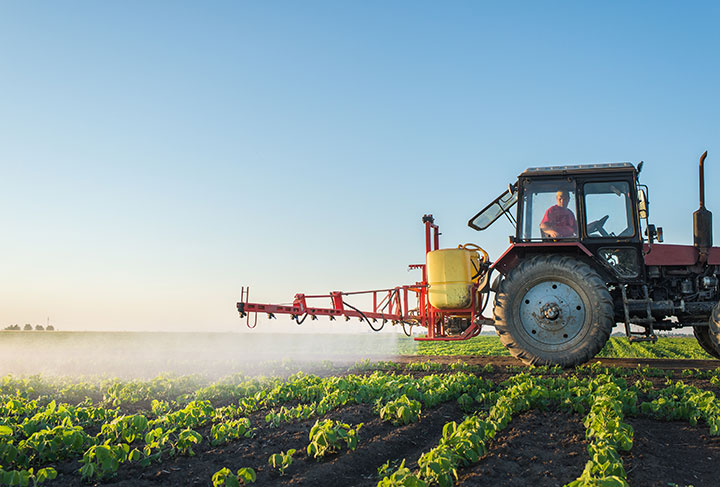For decades, farmers and homeowners have been using Roundup to treat unwanted weeds.
It has become a trusted household name around the world and especially popular in the U.S. But is such trust overlooking the harmful effects Roundup may have?
Although great for weed-killing, the popular product can be dangerous to humans via well water or overexposure.
A Close Look At Glyphosate, the Main Ingredient in Roundup
What Is Glyphosate and How Is It Used?
Glyphosate is an active ingredient used to kill broad-leaf weeds.
It blocks proteins essential to plant growth without harming farmer’s crops. During the early to mid-nineties, common crops like soy, corn, and cotton were genetically modified to tolerate glyphosate.
This boosted Roundup’s popularity. Its use in the farming industry and at-home solutions skyrocketed to treat weeds likepoison ivy and dandelions.
Does Glyphosate Go Away?
A common misconception about glyphosate is that it is safe because it biodegrades. It breaks down in the sunlight if it is exposed for enough time.
However, glyphosate can soak into the soil around your well or get mixed in with runoff water. What then?
If glyphosate makes it into the soil surrounding your well, you and your family are at risk to drinking this chemical. It does not break down as quickly once it gets underground.
Since well water is a collection of groundwater from natural springs, it is susceptible to contamination from foreign elements.
Not all dangers to well water can be identified by taste, look, or smell. Glyphosate may be in your drinking water without you even noticing.
As a result, it is your responsibility to maintain the integrity of your well water by having it tested at least once a year.
What Can Happen After Long-Term Exposure?
The EPA does not currently includeglyphosate in its tests to monitor chemical effects on the human body.
Yet, there has been an increasing amount of affected individuals speaking out against Roundup.
Many farmers with long-term exposure to glyphosate and “inert ingredients” in the weed killer are claiming it as a cause of non-Hodgkin lymphoma. This is a blood cancer targeting the lymph cells of the body.
Defenders of glyphosate say the chemical mainly attacks enzymes exclusively in plant cells, not human cells.
Still, there has been ongoing back and forth speculation and court cases in recent years.
What Are Best Practices to Prevent Roundup Remnants In Well Water?
The two main ways well water can get polluted is through direct contamination or via surrounding water sources.
Always maintain a safe distance of at least 100 feet from your well head when using weed killers. Never spray around sinkholes, either.
Another good safety precaution is ensuring the land around your well head slopes downward, which can help avoid runoff contamination.
To ensure the quality of you and your family’s drinking water, consider buying a carbon filter. Home filtration systems are the necessary final step for having consistently clean water in your home.
Is Your Well Water Safe Water?
Have you been using weed killers on your crops or around the garden?
If so, you may be at risk for drinking contaminated well water, which may lead to strong health concerns.
Keep the whole family safe with water you know is clean. Ask us about well water filtration solutions today!


Leave a Reply